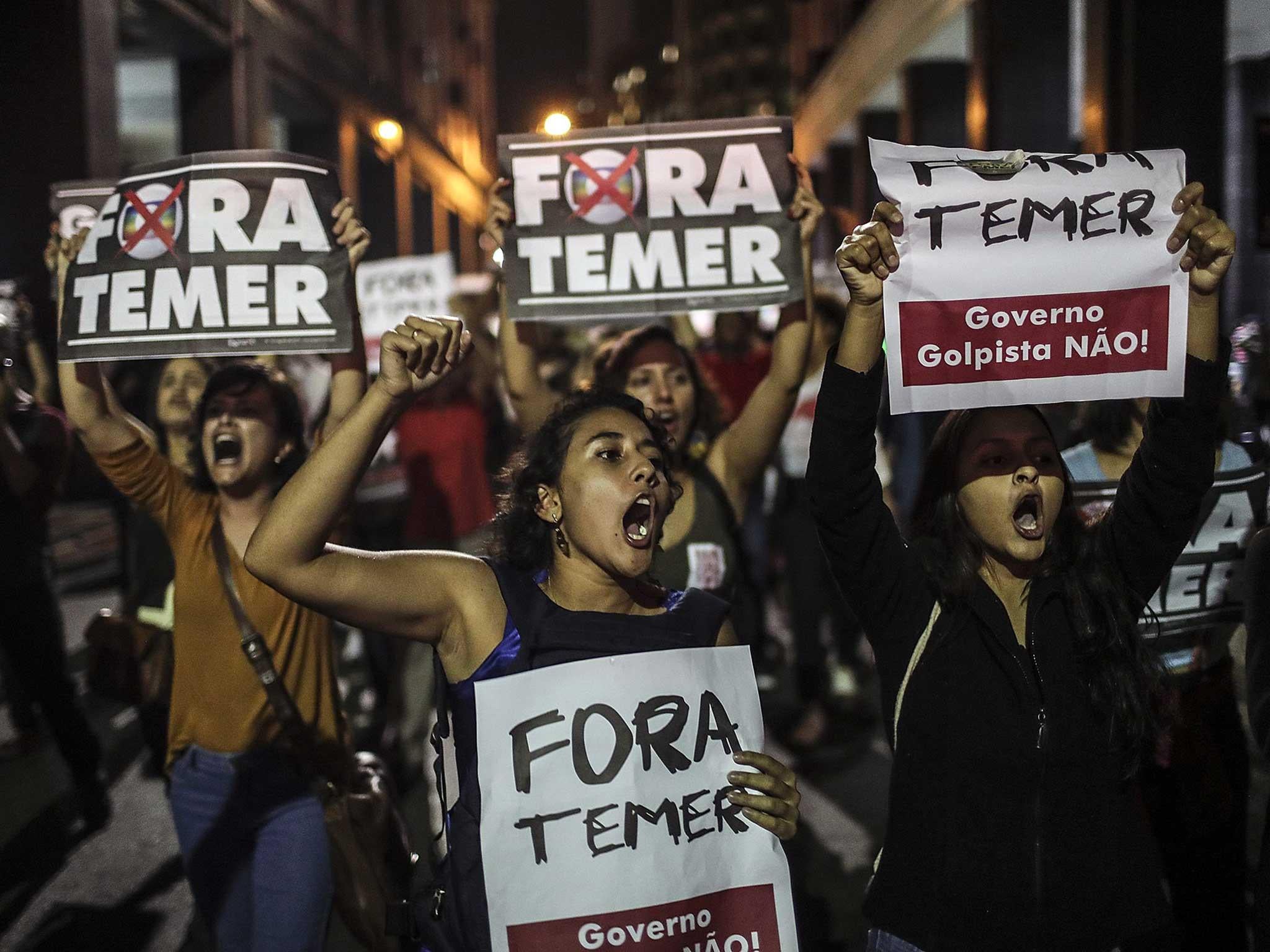Brazil used to say of its politicians ‘he steals but gets things done’ – President Michel Temer can’t even do that
The irony that Michel Temer, the country’s interim president, is banned from running for public office for eight years has not escaped the Brazilian public

Your support helps us to tell the story
From reproductive rights to climate change to Big Tech, The Independent is on the ground when the story is developing. Whether it's investigating the financials of Elon Musk's pro-Trump PAC or producing our latest documentary, 'The A Word', which shines a light on the American women fighting for reproductive rights, we know how important it is to parse out the facts from the messaging.
At such a critical moment in US history, we need reporters on the ground. Your donation allows us to keep sending journalists to speak to both sides of the story.
The Independent is trusted by Americans across the entire political spectrum. And unlike many other quality news outlets, we choose not to lock Americans out of our reporting and analysis with paywalls. We believe quality journalism should be available to everyone, paid for by those who can afford it.
Your support makes all the difference.In an unusual move Brazil’s new president Michel Temer decided not to attend the Paralympics closing ceremony after protesters booed him at both the annual Independence Day parade in Brasília on 7 September and the opening ceremony on the same day.
While his absence minimised the chances of another vocal protest with the eyes of the world on Brazil, Lúcio Maia, the guitarist of Nação Zumbi, one of the bands playing at the ceremony, turned his guitar around to show a sign saying “Fora Temer” (“Out with Temer”), which ended up being broadcast on TV screens around the world.
These episodes show that Temer has not had much of a honeymoon period after taking office when his predecessor Dilma Rousseff was impeached on 31 August. If so many Brazilians supported Rousseff’s impeachment and went to the streets to demonstrate against her government, then why is Temer so unpopular and what is next for Brazil?
For many Brazilians, corruption is the country’s most important problem and the irony that Rousseff was not personally convicted of fraud but Temer was has not escaped them. In June this year, an electoral court convicted Temer of donating more than the legal limit to the 2014 presidential election campaigns. He is now banned from running for public office for eight years – a conviction that Rousseff managed to avoid in the impeachment trial – while facing further accusations that he was implicated in bribery scandals.
A common Brazilian phrase referring to the prevalence of corruption among the country’s politicians is “he steals but gets things done” (“rouba mas faz”), which in Temer’s case reflects the hope that if his government delivers a way out of the economic crisis, this might paper over the corruption scandals. After five months in power, though, Temer faces a deepening economic recession, which the World Bank forecasts to last for the next two years.
Although the crisis has as much to do with the global economic downturn affecting Brazil’s export revenues as with government policies, Temer’s team is likely to introduce painful budget cuts while making labour rights increasingly flexible and cutting spending on the previous government’s popular social programmes. Turning Temer’s slogan around once again, his opponents have accused him of “robbing” them of their rights, which refers not only to spending cuts but also to more fundamental questions about the new government’s legitimacy.
These dilemmas reflect Temer’s 14 per cent approval rating in the latest opinion polls held in July, while only 5 per cent of Brazilians would vote for him in the presidential elections, trailing behind the frontrunners Lula and Marina Silva. Even if he had not been banned from running, Temer would have been unlikely to win the presidential elections.
Most Brazilians now support early elections, reflecting a shift in emphasis among the protestors. Since Rousseff’s impeachment, daily protests around the country call for the right to exercise democratic rights through new elections, which unites those who are protesting in favour of Rousseff and those who remain sceptical about the previous governments but prefer a clean break with the politics of the past. Because of Temer’s lack of popularity, calling early elections would almost certainly mean that his party loses power, but waiting until 2018 for the next elections is also likely to further polarise Brazilian society.
Join our commenting forum
Join thought-provoking conversations, follow other Independent readers and see their replies
Comments